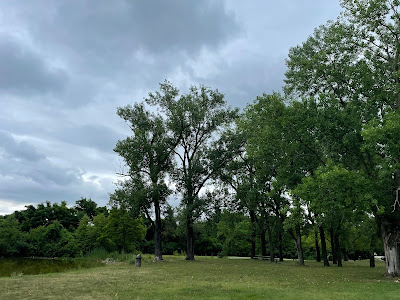We're excited to welcome Steve Adams to the blog. His debut
novel Remember This releases October 11th with University of Wisconsin Press. The
book follows John Martin, a talented graphic designer employed as a
word processor for a prestigious New York investment bank, as he enters into an
affair with his married boss and is suddenly forced to confront his serial
history of relationships with otherwise attached, emotionally complex women,
and his damaged past concerning his family and three older sisters.
Though Remember This is your debut novel, forthcoming this October, you
have had stories and essays published in many venues over the years. When were
you first bitten by the writing bug?
It’s a much longer story, but I was twenty-five, in Austin and
pretty lost, studying acting, jazz guitar, generally flailing about, just
trying to find a place to put this “stuff” that was inside me and to get my
feet under me. Strangely I’d never been exposed to modern poetry, and in a
dance/movement class in the theater program our teacher had us spout modern
poetry while leaping about (like fools, I’m sure). But the words struck me. I
couldn’t believe I’d not been exposed to this amazing art form. So when they
kicked me out of the acting program for stinking as an actor, I stumbled away
and on a whim took a poetry class where I had the immense fortune of landing in
an undergrad poetry class taught by the amazing, and still working, Albert
Goldbarth. It was one of the best breaks of my life, and he even gave me a
blurb for my novel. My life entirely changed direction at that point.
Can you share with us
the experience of having been published for the very first time?
It was pretty intense. After years of writing poetry, and then
one-act plays, and moving to New York to see my one-acts produced, I took off
to LA with dreams of cracking the big time as a screenwriter. It was a total
washout and I soon decided it was time to give up writing and finally live a
sensible life. No luck there! I didn’t last three months before I was so
emotionally uncomfortable from not writing that I started writing prose for the
first time just to blow off steam. I was thirty-eight then and realized
immediately that after all this time I’d finally found my form. I wrote a half
dozen short stories, one after another, and the first one to land won Glimmer
Train’s New Writer’s Award, and—I promise I’m not making this up—I was
staying at the motel across from Graceland in Memphis when I found out I’d won.
I’m not making this up either—in NYC my last play to be produced there before I
left for LA was a one-act called “Velvet Elvis.” Elvis has been my patron saint
ever since.
You write both fiction
and non-fiction. Which comes more naturally? Why do you think that is?
This is a tough question for me to answer, only because I don’t
have a clear response. But the way my process works is my stories generally
find me. Which doesn’t mean I don’t go out looking for ideas. But when one hits
me, the fiction ones and the nonfiction ones just feel different. For one
thing, my nonfiction, except for my writing process essays, is almost
exclusively narrative driven, and so for me that means memoir. Of course you
can always turn a true experience into fiction, but for me the true experiences
always want to be written as memoir, because there’s the “truth” of the true
story I want to uncover and get at.
When writing fiction,
what comes first for you, the story or the characters?
Honestly, I’m always looking for both, and with my stories that
work it feels like they somehow happen at the same time. If a true character
appears, that character will have a drive or a need or a want that’s
unfulfilled, and that creates the trajectory of the story they’re going to
follow. I think that’s why it feels they happen almost simultaneously. Though
I’m not going to lie—I keep my eyes open for a purely brilliant narrative all
the time. I’d kill for a premise as clear and solid as The Hunger Games.
How did the idea and storyline
begin for Remember This?
New York City is a very important place for me, and I probably
feel like I belong there more than any other place, even during hard times. I
lived there for sixteen years broken up into three forays over three decades,
and in 2008 the economic collapse wiped out my job. As there was no work to be found
in the city, I had to leave. I had several months of unemployment until my lease
was out, so I spent those months wandering my beloved city, revisiting every
place of importance to me. And, as I always do, I wrote. I started to write
about what I was experiencing, that clock ticking on my life there. But I knew
that alone wouldn’t sustain a full novel, so the idea came to me of a young man
involved in an affair with a woman who is likely the love of his life, a
married woman with a child, who is also his supervisor in the office where they
work. They have two months together while her husband is out of the country.
When John’s not with her he wanders the city much as I did, obsessively, taking
it all in. And those two loves of his—the city and the woman—reflect each other,
as the days wind down.
What was the most
challenging part of the writing process for you?
I am a writing coach and writing is a way of life for me, and
also I know a lot of tricks to keep going. But if we’re talking about this
novel, it was probably figuring out the structure. This was also one of the
most exciting parts of writing the book, because I have two storylines: one
current (the two-month affair in 1988 NYC), and one past (my protagonist’s
childhood in Texas). The chapters are relatively short, and I grouped them
together in sets of two and three, however it felt right organically. And I
spent a good amount of time working with arranging these time periods so they’d
click together, and build, and echo, and create emotional resonance. Once I
realized I had—and I hope this doesn’t sound obnoxious, but—a beautiful,
meaningful structure, I mean, man, that was a good day. There are so many
elements that go into a successful novel, but it’s hard to think of anything
more important than structure.
In what ways did the
book change from first draft to the final manuscript?
As I’ve said, the book has two storylines, the main one in 1988
AIDS-haunted NYC where my protagonist, John Martin, is an adult, and the second
one nested inside, tracking John’s childhood with his three older sisters in
Texas and how that led him to become who he is at this point, a man with a
specific wound he’s unaware of. Anyway, my original draft just covered the main
story—John wandering the city, in love with this woman and this city he is
going to lose. After I finished and a few people read it, I realized this one
storyline was not enough to sustain it, and I got this vision of him as a child
in a very particular family in Texas with very particular issues. And so I
wrote that storyline and inserted it, having the book toggle between the two
stories. It made all the difference, giving a why to go with the what
of John.
Which character, if
any, do you most relate to?
It would be John. We’re different, of course, and don’t have the
same problems, but like him I moved to New York City and came into myself
there. I would be there now if I could afford it. He and I share some history
too, particularly hanging around the dynamic music scene in Austin in the early
80s. It was fun to pull some of those details into this book in its Austin
section.
Which character was
the most difficult to write?
This may sound obnoxious (again), but I didn’t find any of the
characters hard to write. I didn’t struggle with them. In fact, it felt like
they were teaching me about who they were. The hardest part of writing this
novel was getting the structure right, making those two storylines line up. I
had to make multiple runs at that, but once I had it, it clicked into place.
I’m as proud of the structure of this book as anything else I’ve done.
What’s the most
valuable advice someone has given you about writing?
Writing is the best teacher of writing. So just write. Show up
regularly, and produce pages, good and bad, it doesn’t matter. They will lead
you somewhere, while at the same time teaching you more about how to write. As
you know I’m a writing coach and I give variations of this advice to my clients
all the time.
What’s a book you’ve
read that you wish you had written?
Marilynne Robinson’s Housekeeping. I’ve only read it
once, but the whole experience of it was magical and overwhelming. I have no
idea how she pulled that off.
1.
What are you reading
right now?
In trying to take some
weight off my reading load during this intense publicity process, I’ve turned
back to my first love, poetry. Right now I’m rereading one of my favorites,
William Stafford, and his collection, The Way It Is. At the same time
I’m reading a book from my beloved mentor, Albert Goldbarth. Just reading a
poem or two every morning and not having to carry a full-length narrative in my
mind at the moment has been supporting me.
Steve Adams’s creative nonfiction has won a Pushcart Prize, been listed
as “Notable” in Best American Essays, and has been published
in The Pinch, The Millions, and elsewhere. In fiction, he’s
won Glimmer Train's Short Story Award for New Writers, and his
stories have been anthologized and published in Glimmer Train, The
Missouri Review, and elsewhere. He’s been a guest artist at UT, a
resident artist at Jentel, a scholar at the Norman Mailer Writers’ Colony, and his
plays have been produced in NYC. He’s a writing coach and editor, and his
website is steveadamswriting.com. Remember
This, his debut novel, will be featured at The Southern Festival of
Books in Nashville the weekend of Oct. 14.


















